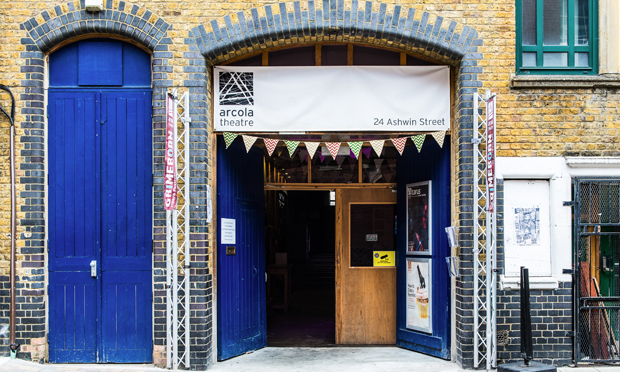Arcola Theatre awarded £30k for ‘DIY history’ project in Hackney

History lessons: the Arcola Theatre in Dalston. Photograph: Arcola Theatre
Dalston’s Arcola Theatre has won over £30,000 in lottery cash for a do-it-yourself history project in Hackney.
Resilient will train 42 volunteers to document the stories of marginalised locals – including those from disability, sex work, LGBTIQ+, BDSM and survivor communities – which may otherwise be lost.
The project, backed by the Heritage Lottery Fund, will also involve workshops, presentations, an exhibition and a website, which the Arcola hopes will foster new connections in the borough.
Resilient was dreamed up by the theatre’s award-winning Participation department, which comes up with 11,000 creative opportunities for the local community each year.
The scheme will see the Arcola team up with collaborative storytelling expert Jet Moon, who engages with community groups from an insider perspective.
Moon said: “I’m very excited about this opportunity to help people tell their stories in a way which opens new areas of understanding.
“The simple details of everyday life can be full of resonance and meaning and deserve to be properly valued, because this is how we tell each other about who we really are.”
Arcola Participation Manager Bec Martin-Williams said: “Those who will be involved in Resilient are often isolated with few opportunities to present their own stories.
“Many are experiencing the loss of legal protections, cuts to services and material support, alongside a rise in targeted violence.
“This project will offer them the space and skills to tell their stories on their own terms. It will also offer our whole community an insight into what it means to be resilient – to face external pressure, and to overcome it.
“We hope that that empathy and understanding can help us to build a more inclusive and equitable society.
“We’re grateful to Heritage Lottery Fund for making the project possible.”
The stories recorded as part of Resilient will be preserved in the Hackney Museum and The MayDay Rooms, whose archives will also be used to show how public perceptions of difference have changed over time.
